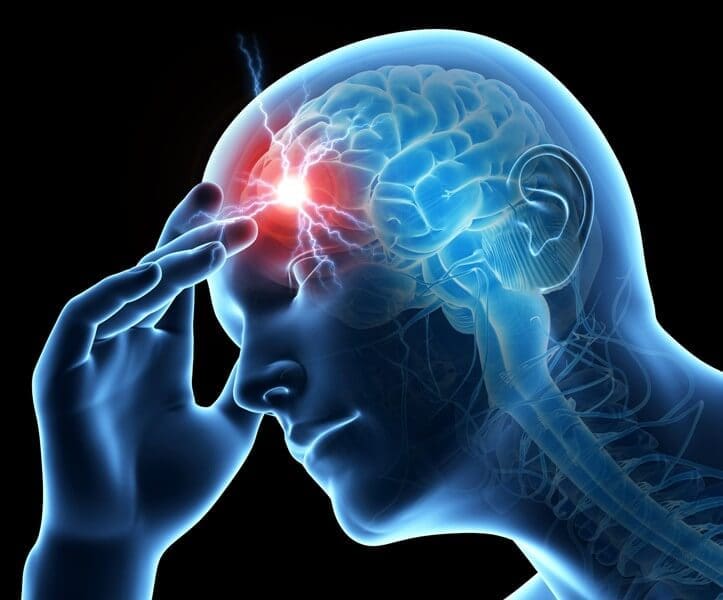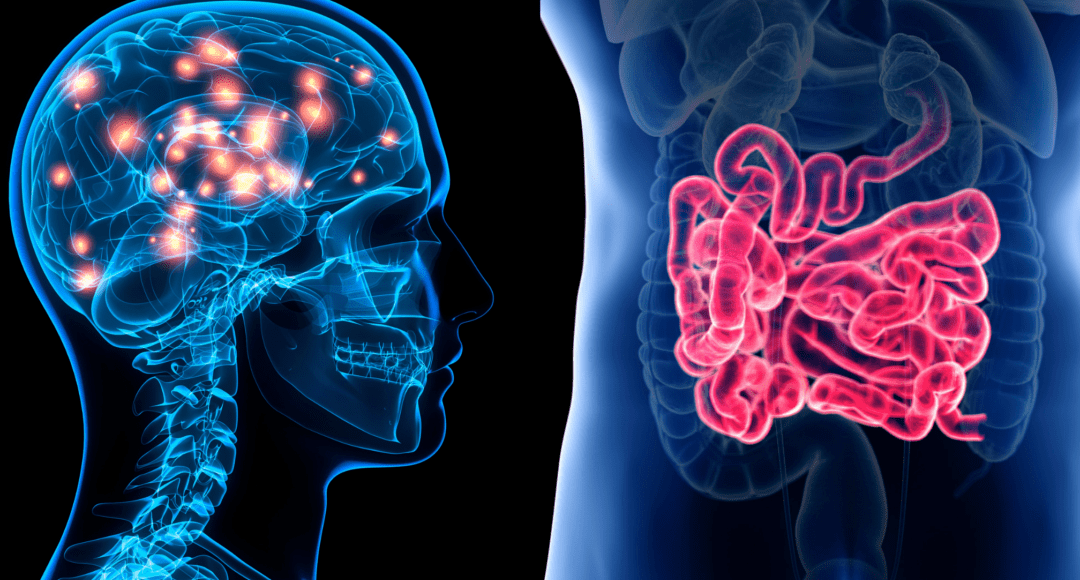Table of Contents
Introduction
The gut microbiome is “the second brain” in the body as it helps regulate homeostasis and metabolize the immune system for functionality and to keep the body in motion. The brain is part of the nervous system, providing neuron signals constantly traveling all over the body. The brain and the gut have a communication partnership where they send information back and forth for the body to function normally. When the body gets injured, either the brain, the gut, or both can be affected, causing dysfunction and unwanted symptoms that can cause other issues to affect the other systems in the body. One of these injuries can affect the brain in a traumatic way, which can disturb the signaling to the gut microbiota and affect an individual’s quality of life. Today’s article looks at a traumatic brain injury known as a concussion, its symptoms, and how it affects the gut-brain axis in the body. Refer patients to certified, skilled providers specializing in gut treatments for individuals that suffered from concussions. We guide our patients by referring to our associated medical providers based on their examination when it’s appropriate. We find that education is critical for asking insightful questions to our providers. Dr. Alex Jimenez DC provides this information as an educational service only. Disclaimer
Can my insurance cover it? Yes, it may. If you are uncertain, here is the link to all the insurance providers we cover. If you have any questions or concerns, please call Dr. Jimenez at 915-850-0900.
What Is A Concussion?

Have you been headaches that pop out of nowhere and affect you daily? Have you been experiencing leaky gut or other gut disorder issues causing problems? Do you have trouble concentrating on the simple tasks at hand? Many of these symptoms are signs that you might be suffering from a concussion. Research studies have defined a concussion as a transient disturbance that traumatically induces brain function in the body. Concussions can vary depending on the severity of the injury. When a person suffers from a concussion, the neurotransmitters get disrupted as the brain’s electrolytes go through neurological dysfunction, and blood glucose metabolism decreases cerebral blood flow. Other research studies have found that a concussion does an axial rotation to the brain, which results in the brain jiggling and causes whiplash to the neck. This disruption will cause a biochemical injury that either alters the blood glucose metabolism or can cause derangement of the adenine nucleotides of the nervous system.
Its Symptoms
Research studies have found that when a person suffers from a concussion, the symptoms in its acute phase can drastically change and evolve into a chronic situation over time. Concussions usually occur in individuals that play a contact sport, where they bump each other in the heads, auto accidents that causes severe injuries that affect the neck and brain, or even a simple blow to the head. Other research studies have stated that the symptoms of a concussion can include:
- Blurry vision
- Headaches
- Dizzyness
- Mood changes
- Light sensitivity
- Concentration and memory complications
Additional research studies have mentioned that neuronal dysfunction can occur when a person suffers from a concussion as there are ionic shifts, impaired connectivity to the brain, and changes in the neurotransmitters from completing their jobs to provide sensory-motor functions to the entire body. When this happens, not only does the nervous system gets affected, but the gut system gets affected as well.
An Overview Of Leaky Gut & Concussions-Video
Do gut disorder symptoms seem to be affecting your quality of life? Have you become sensitive to light? Have you felt muscle stiffness in your neck? Or have you been suffering from frequent headaches? If you are experiencing any of these symptoms, it might be due to a concussion affecting your gut microbiota. The video above explains how a concussion and a leaky gut are linked. In an average functioning body, the gut and the brain have a bi-directional connection as they help send the neuron signals to each of the body systems and muscle tissues that make the body move. When traumatic forces like a concussion affect the brain, it can disrupt and change the neurotransmitters signals that can cause gut disorders in the microbiota. When gut disorders affect the gut microbiota, it can cascade a series of inflammatory effects that can affect the body’s homeostasis and immune function. Experiencing these symptoms in the body can drastically affect a person’s mood and quality of life if it is not taken care of immediately.
How The Gut-Brain Axis Is Affected By A Concussion?

Since the gut-brain axis has a communication partnership, this axis helps the body’s immunity, homeostasis, and metabolism function. When a concussion starts to affect the gut-brain axis, research studies have shown that the communication pathways are affected in the gut-brain axis as tit incorporates the afferent and efferent signals. The signals involved in the gut-brain axis include the hormones, neurons, and immune pathways that can result in chronic gastrointestinal dysfunction and disability to the body. Since the gut helps keep the body functional through homeostasis, the brain helps the neuron signals provide sensory functions. With a concussion, these signals are disrupted, affecting the body’s functionality and causing a change in a person’s mood.
Conclusion
Overall the gut-brain axis provides functionality to the body by maintaining the homeostasis and metabolism of the immune system. A person’s involvement in a traumatic accident can lead to brain injuries like a concussion that can impair the gut and brain relationship. A concussion can become severe when it is not treated right away and can affect a person’s quality of life in their health and wellness journey.
References
Ferry, Benjamin, and Alexei DeCastro. “Concussion – Statpearls – NCBI Bookshelf.” In: StatPearls [Internet]. Treasure Island (FL), StatPearls Publishing, 19 Jan. 2022, https://www.ncbi.nlm.nih.gov/books/NBK537017/.
Giza, Christopher C., and David A. Hovda. “The Neurometabolic Cascade of Concussion.” Journal of Athletic Training, National Athletic Trainers’ Association, Inc., Sept. 2001, https://www.ncbi.nlm.nih.gov/pmc/articles/PMC155411/.
Mann, Aneetinder, et al. “Concussion Diagnosis and Management: Knowledge and Attitudes of Family Medicine Residents.” Canadian Family Physician Medecin De Famille Canadien, College of Family Physicians of Canada, June 2017, https://www.ncbi.nlm.nih.gov/pmc/articles/PMC5471087/.
Staff, Mayo Clinic. “Concussion.” Mayo Clinic, Mayo Foundation for Medical Education and Research, 17 Feb. 2022, https://www.mayoclinic.org/diseases-conditions/concussion/symptoms-causes/syc-20355594.
Tator, Charles H. “Concussions and Their Consequences: Current Diagnosis, Management and Prevention.” CMAJ : Canadian Medical Association Journal = Journal De L’Association Medicale Canadienne, Canadian Medical Association, 6 Aug. 2013, https://www.ncbi.nlm.nih.gov/pmc/articles/PMC3735746/.
Zhu, Caroline S, et al. “A Review of Traumatic Brain Injury and the Gut Microbiome: Insights into Novel Mechanisms of Secondary Brain Injury and Promising Targets for Neuroprotection.” Brain Sciences, MDPI, 19 June 2018, https://www.ncbi.nlm.nih.gov/pmc/articles/PMC6025245/.
Disclaimer
Post Disclaimer
Professional Scope of Practice *
The information on this blog site is not intended to replace a one-on-one relationship with a qualified healthcare professional or licensed physician and is not medical advice. We encourage you to make healthcare decisions based on your research and partnership with a qualified healthcare professional.
Blog Information & Scope Discussions
Welcome to El Paso's Premier Wellness and Injury Care Clinic & Wellness Blog, where Dr. Alex Jimenez, DC, FNP-C, a board-certified Family Practice Nurse Practitioner (FNP-BC) and Chiropractor (DC), presents insights on how our team is dedicated to holistic healing and personalized care. Our practice aligns with evidence-based treatment protocols inspired by integrative medicine principles, similar to those found on this site and our family practice-based chiromed.com site, focusing on restoring health naturally for patients of all ages.
Our areas of chiropractic practice include Wellness & Nutrition, Chronic Pain, Personal Injury, Auto Accident Care, Work Injuries, Back Injury, Low Back Pain, Neck Pain, Migraine Headaches, Sports Injuries, Severe Sciatica, Scoliosis, Complex Herniated Discs, Fibromyalgia, Chronic Pain, Complex Injuries, Stress Management, Functional Medicine Treatments, and in-scope care protocols.
Our information scope is limited to chiropractic, musculoskeletal, physical medicine, wellness, contributing etiological viscerosomatic disturbances within clinical presentations, associated somato-visceral reflex clinical dynamics, subluxation complexes, sensitive health issues, and functional medicine articles, topics, and discussions.
We provide and present clinical collaboration with specialists from various disciplines. Each specialist is governed by their professional scope of practice and their jurisdiction of licensure. We use functional health & wellness protocols to treat and support care for the injuries or disorders of the musculoskeletal system.
Our videos, posts, topics, subjects, and insights cover clinical matters and issues that relate to and directly or indirectly support our clinical scope of practice.*
Our office has made a reasonable effort to provide supportive citations and has identified relevant research studies that support our posts. We provide copies of supporting research studies available to regulatory boards and the public upon request.
We understand that we cover matters that require an additional explanation of how they may assist in a particular care plan or treatment protocol; therefore, to discuss the subject matter above further, please feel free to ask Dr. Alex Jimenez, DC, APRN, FNP-BC, or contact us at 915-850-0900.
We are here to help you and your family.
Blessings
Dr. Alex Jimenez DC, MSACP, APRN, FNP-BC*, CCST, IFMCP, CFMP, ATN
email: coach@elpasofunctionalmedicine.com
Licensed as a Doctor of Chiropractic (DC) in Texas & New Mexico*
Texas DC License # TX5807
New Mexico DC License # NM-DC2182
Licensed as a Registered Nurse (RN*) in Texas & Multistate
Texas RN License # 1191402
ANCC FNP-BC: Board Certified Nurse Practitioner*
Compact Status: Multi-State License: Authorized to Practice in 40 States*
Graduate with Honors: ICHS: MSN-FNP (Family Nurse Practitioner Program)
Degree Granted. Master's in Family Practice MSN Diploma (Cum Laude)
Dr. Alex Jimenez, DC, APRN, FNP-BC*, CFMP, IFMCP, ATN, CCST
My Digital Business Card


